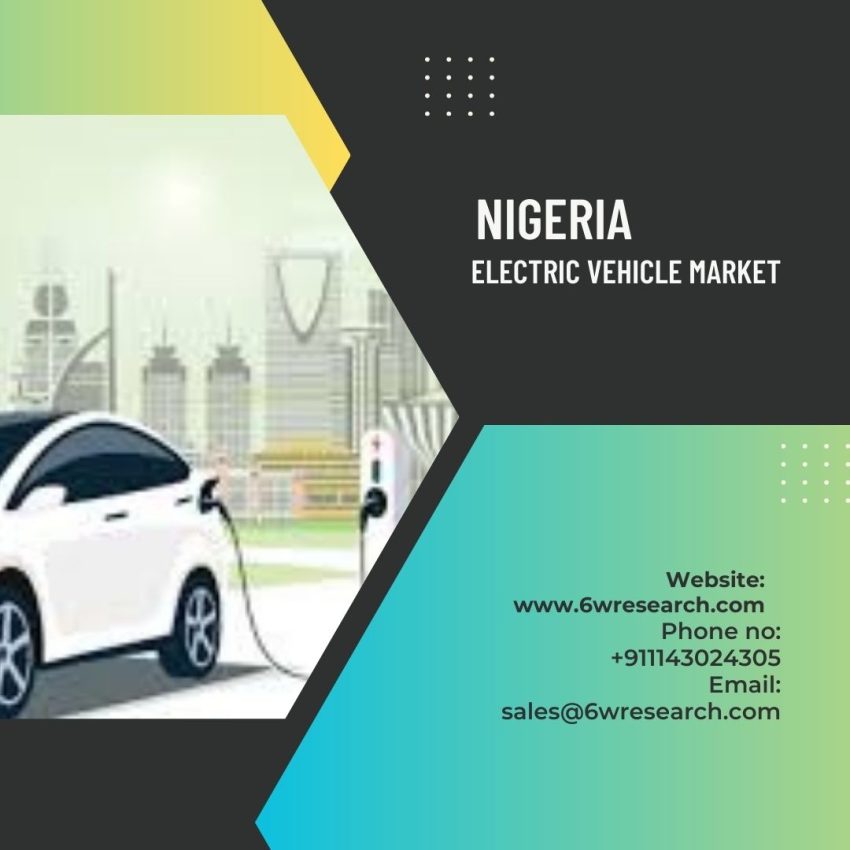Buckle up, because Nigeria electric vehicle market is about to take off! With a population of over 200 million people and an increasing demand for sustainable transportation options, the potential for EVs in Nigeria is immense. From government initiatives to private sector investments, there are plenty of indications that the country is ready to embrace this new era of mobility. So let’s dive into the exciting world of Nigerian EVs and explore what this means for the future of transport in Africa’s most populous nation.
Overview of the Nigeria Electric Vehicle Market
The electric vehicle market in Nigeria is still in its infancy, with only a handful of companies have entered the space. However, there is significant potential for growth in the market, as Nigeria has one of the highest rates of electrification in Africa.
There are several factors that will drive the growth of the Nigeria electric vehicle market in the coming years. First, the country has an increasing demand for energy, which is expected to continue to grow in the coming years. This will create a need for more efficient and cleaner vehicles, which electric vehicles can provide.
Second, the Nigeria government has shown support for electric vehicles, with a number of policies and initiatives aimed at promoting their adoption. These include tax incentives for buyers and manufacturers, as well as infrastructure development projects.
Third, there is a growing number of companies operating in the Nigerian electric vehicle market, including both local and international players. This increase in competition is expected to lead to lower prices and improved quality of products and services.
Finally, consumers are becoming more aware of the benefits of electric vehicles, such as their lower running costs and environmental benefits. This is likely to lead to increased demand from individuals and businesses alike.
Drivers of Growth in the Nigeria Electric Vehicle Market
The Nigeria electric vehicle market is expected to grow in the coming years due to a number of factors. First, the country’s population is projected to continue to grow, reaching nearly 400 million by 2050. This growth will lead to increased demand for transportation, which electric vehicles can help meet. Second, the price of batteries and other components needed for electric vehicles is falling, making them more affordable. Finally, the Nigerian government has expressed interest in promoting electric vehicles as a way to reduce air pollution and dependence on imported oil.
Challenges Facing the Nigerian Electric Vehicle Market
In spite of its vast potential, the Nigerian electric vehicle market faces significant challenges. These include:
1. Lack of infrastructure: Nigeria lacks the charging infrastructure needed to support a large number of electric vehicles. There are only a handful of public charging stations in the country, and most are concentrated in major cities like Lagos and Abuja. This lack of infrastructure is a major barrier to the wider adoption of electric vehicles in Nigeria.
2. High cost of batteries: The high cost of batteries is another challenge facing the Nigerian electric vehicle market. A typical battery pack can cost up to $15,000, which is out of reach for many Nigerians.
3. Limited range: Electric vehicles typically have a limited range before needing to be recharged, which can be a problem in a country like Nigeria with long distances between cities. This limitation makes electric vehicles less practical for many Nigerians who need to travel long distances on a regular basis.
4. Lack of awareness: There is still a lack of awareness about electric vehicles in Nigeria, which limits their adoption. Many Nigerians are not aware of the benefits of electric vehicles, such as lower running costs and environmental benefits.
Investment Opportunities in the Nigerian Electric Vehicle Market
Nigeria presents a unique opportunity for investors in the electric vehicle market. The country has a large population and a rapidly growing economy, making it an attractive market for electric vehicles. Nigeria also has a young population, which is more open to new technologies than older generations.
There are several factors that make Nigeria an attractive market for electric vehicles. First, the country has a large population of over 200 million people. This provides a large potential market for electric vehicles. Second, Nigeria’s economy is growing rapidly, with GDP growth averaging 7% per year over the last decade. This economic growth is expected to continue, making Nigeria an increasingly wealthy country. This will create more demand for electric vehicles as people will have more disposable income to spend on them.
Third, Nigeria has a young population. Over 60% of the population is under the age of 25. This youthful population is more open to new technologies than older generations and is more likely to adopt electric vehicles. Fourth, Nigeria has abundant natural resources, including oil and gas reserves. These resources can be used to generate electricity to power electric vehicles. Finally, the Nigerian government is supportive of the development of the electric vehicle market and has set ambitious targets for the adoption of electric vehicles.
The above factors make Nigeria an attractive market for investment in the electric vehicle market. There are numerous opportunities available for investors in this market
Strategies for Expanding the Nigerian Electric Vehicle Market
As the world’s population continues to grow, so does the demand for energy. Nigeria, with a population of more than 200 million people, is no exception. The country has an ever-growing appetite for energy, and its electric vehicle (EV) market is no different.
With a young and rapidly growing population, Nigeria is an ideal market for EVs. The country has a high rate of urbanization, with nearly 60% of the population living in cities. This urbanization is expected to continue, as the United Nations projects that Nigeria will be the third most populous country in the world by 2050. Additionally, Nigeria’s economy is projected to be one of the fastest-growing in the world over the next few decades. These factors all contribute to a large and growing potential EV market in Nigeria.
There are a number of strategies that can be used to expand the Nigerian EV market. One key strategy is to increase public awareness about EVs and their benefits. Many Nigerians are unaware of EVs and their potential benefits, such as lower fuel costs and emissions. Increasing public awareness can help to build consumer confidence in EVs and encourage more people to consider them as a transportation option.
Another strategy is to develop a robust EV charging infrastructure. Currently, there are very few public charging stations in Nigeria, which limits consumer adoption of EVs. A lack of charging infrastructure is often cited as one of the main barriers to EV adoption globally. Developing a comprehensive charging network will be essential to expanding the
Government Initiatives to Support the Growth of the Nigerian Electric Vehicle Market
In order to support the growth of Nigeria’s electric vehicle market, the government has put in place a number of initiatives. Firstly, the government is working on creating an enabling environment for the adoption of electric vehicles. This includes putting in place infrastructure such as charging stations and providing fiscal incentives for the purchase of electric vehicles. Secondly, the government is working on increasing awareness about electric vehicles through education and outreach programs. Thirdly, the government is supporting research and development in the area of electric vehicles, with a view to developing indigenous technologies and capabilities.
Conclusion
Nigeria has a great opportunity to become a leader in electric vehicle technology and unlock the potential of its own electric vehicle market. With the right incentives and policies, both from the government and private sector, Nigeria can rapidly expand its infrastructure for electric vehicles, creating an ecosystem that is conducive to growth. Furthermore, this will help reduce emissions and provide clean transportation options for Nigerians. This could be an exciting time for those interested in exploring the possibilities of electric vehicles in Nigeria!

